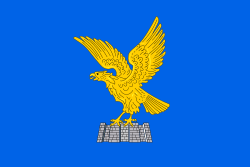 |
|---|
|
The politics of Friuli-Venezia Giulia , a region of Italy, takes place in a framework of a presidential representative democracy, where the President of the Region is the head of government, and of a multi-party system. Executive power is exercised by the Regional Government. Legislative power is vested in both the government and the Regional Council.




